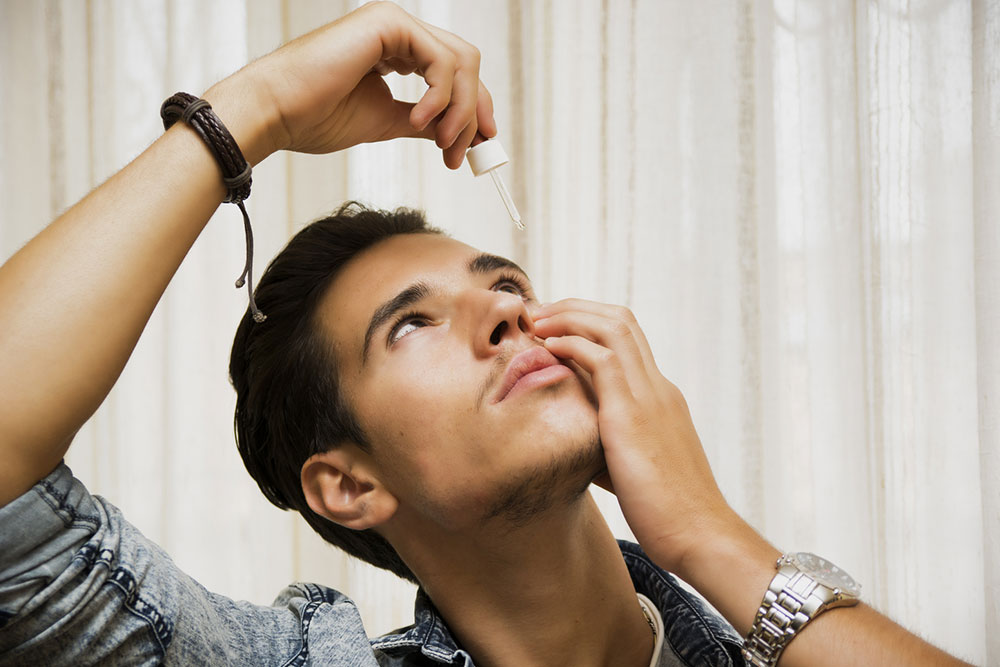
8 management options for dry eyes
Dry eyes, as the name suggests, is a condition in which the eyes do not get enough lubrication through tears. Although it can be brought on by various factors, with increasing daily screen time growing significantly, the condition has become more common. Dry eyes are usually accompanied by itching, blurry vision, and discomfort, affecting daily tasks. These issues can be managed through treatment. So, below, one can learn about certain treatment options for dry eyes:
Warm compress
To prevent eyes from drying up, it is essential to clear and unblock the oil glands. This can be done by gently applying a warm compress to closed eyelids. One can use a soft and clean cloth for a warm compress. Here, the warmth will help unclog the oil-producing glands unclog and improve eye comfort. One can also use a warm, wet washcloth to gently rub over their eyelids. Along with activating the oil glands, this will also help in clearing any dust particles stuck near eyelashes that could be irritating the eyes.
Eyelid massage
Gently massaging the eyelids can activate the oil glands in the eyes, helping relieve dry eye symptoms. To do this, one must first wash their hands properly to minimize the risk of infection. Then, after closing their eyes, they can use their index and middle fingers to massage their eyelids gently in a circular motion for about half a minute. Massaging the area between the eyebrows and eyelids also helps. Regular eyelid massages can help relax the muscles in the area and improve blood circulation. However, it is important to note that if one experiences any discomfort during the massage, they must immediately stop.
Humidifier
The indoor air tends to get dryer during colder months, and this can worsen dry eye symptoms. Further, using a heating system during winter also makes the air dryer. A good way to address this problem is by using a humidifier to add moisture to the air. This creates a more comfortable environment for the eyes.
Resting the eyes
Those who spend a long time in front of the screen could experience dry eyes. Further, facing a screen for a long period without any breaks can reduce eye moisture. This is why it is important to take breaks, i.e., look away from the screen and give the eyes time to rest. A good way to ensure this is by following the 20/20/20 rule, in which, after every 20 minutes, one should look away from the screen and focus on something else that is 20 feet away for at least 20 seconds. This exercise should also be carried out while engaging in other tasks that can strain the eyes, like reading or writing for long periods.
Artificial tears
Artificial tears are another suitable option available for managing dry eyes. When dealing with the condition, the glands either do not produce enough tears or the tears evaporate quickly, leaving behind dryness. Either way, the absence of tears is the key problem to address. This is where artificial tear drops come in. They temporarily lubricate the eyes, helping alleviate the symptoms. However, before using such products, one must consult a medical professional to determine if this is a suitable option for them.
Prescription eye drops
When the symptoms of dry eyes seem to persist, it is crucial to consult an eye specialist for suitable dry eye treatment options. They may prescribe suitable eye drops to relieve certain symptoms by reducing inflammation and increasing tear production. Even though such products are easily available, it is extremely important to choose the ones prescribed by a doctor, as they will recommend the safest eye drops for dry eyes.
Omega-3 fatty acid supplements
Studies have shown that omega-3 fatty acids, which are usually found in fish oil supplements or foods like salmon and flaxseeds, can help reduce the severity of dry eye symptoms. However, before taking any supplements, one must first consult their healthcare provider to determine if this is a suitable remedy and what would be the appropriate dosage.
Lifestyle changes
Along with undergoing treatment for dry eyes, it is essential to make important changes in lifestyle to improve overall eye health. These changes include reducing screen time (if possible), staying hydrated, using sunglasses when stepping out in harsh sunlight, and maintaining a healthy food regimen.
One can manage the condition by seeking treatment for dry eyes, trying remedies, and making lifestyle changes. Finally, it is important to remember that the best eye drops for extremely dry eyes are the ones prescribed by a medical professional. So, one should consult an eye specialist to choose the most suitable treatment option.




